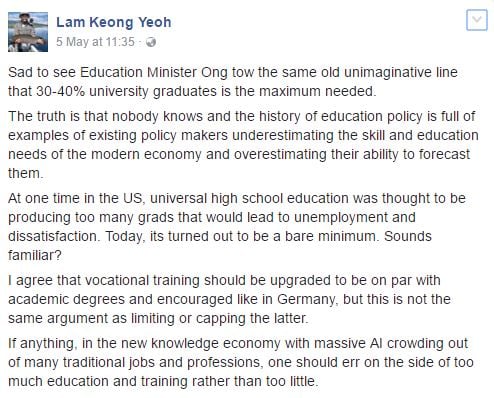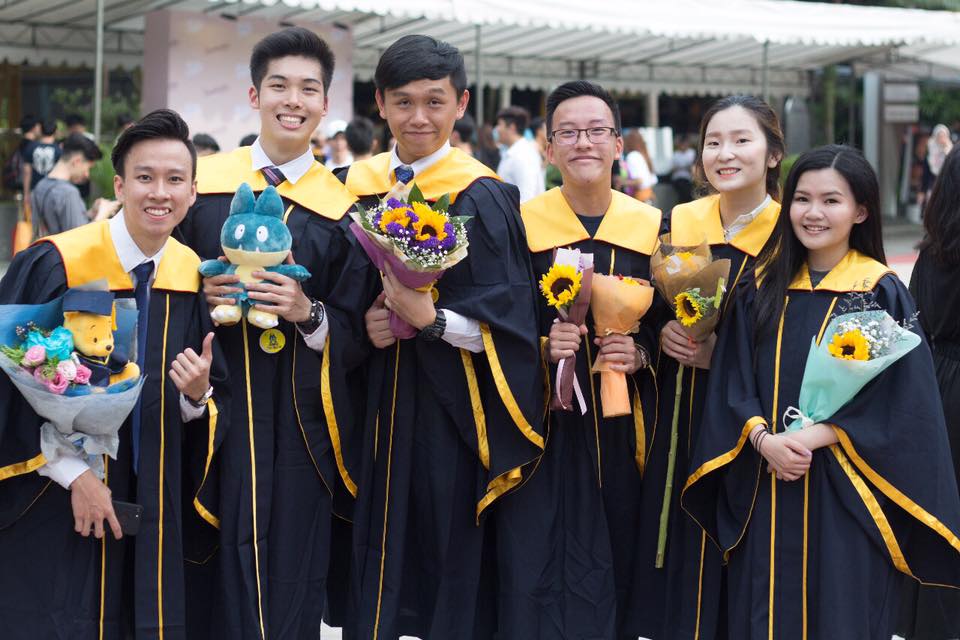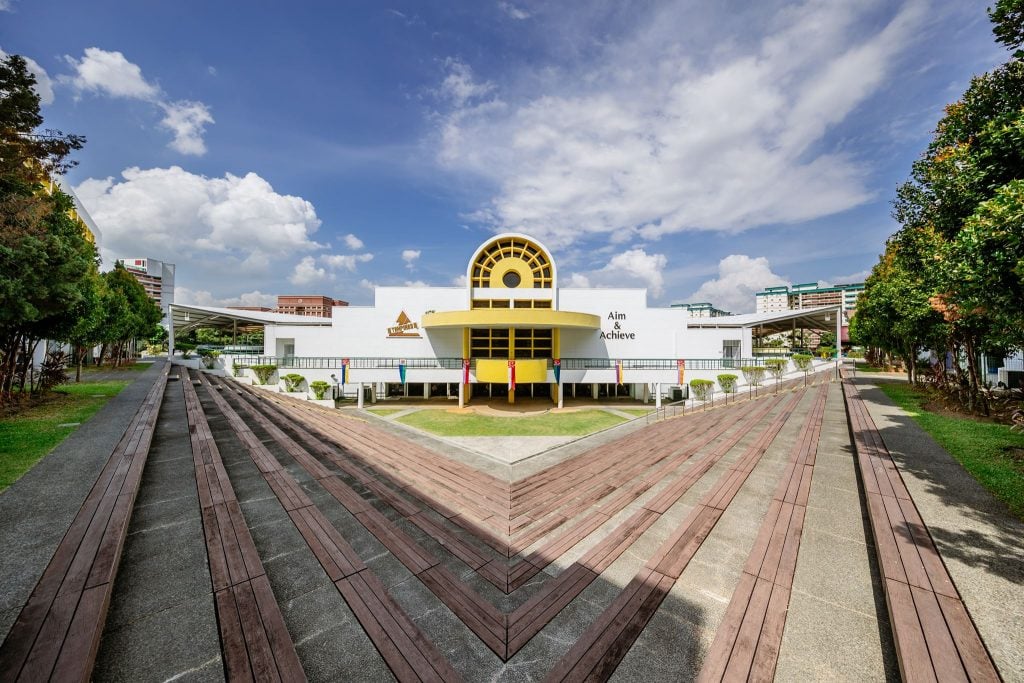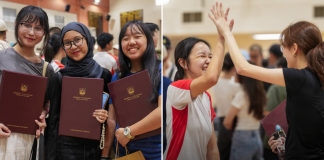Ong Ye Kung Says Skills Are More Important Than Degrees
Speaking at the 47th St. Gallen Symposium in Switzerland last week (May 4), Minister of Education (Higher Education and Skills) Ong Ye Kung was reported saying that Singapore’s number of graduates per cohort needs to be capped at about 30% to 40%, with the remaining being trained for jobs in other relevant industries. Read our story about how Mr Ong Ye Kung talked about a cap on the number of graduates in Singapore.

Although he reasoned his remarks by saying that a “dual-education track” is necessary so that the next generation can become proficient in a wide range of fields, especially as we are moving into a digital age, his views were met with huge debate.
His comments about the cap on degrees for local students seem to contradict plans announced by the Government in 2012 to increase university places to accommodate up to 40% of each cohort by 2020. Why increase uni places if you feel that the number of graduates needs to be capped?
“Unimaginative”
Significantly, one strike came from former Government of Singapore Investment Corporation chief economist Yeoh Lam Keong. In a Facebook post, Mr Yeoh described Mr Ong’s line as “unimaginative”.

Missing The Point
Some netizens, however, seemed to miss the point:


It’s true that the ministers have university degrees and their children will probably go on to have degrees too. It’s also true that the minister might not be where he is today without a degree, but this is not about the ministers. This is about Singapore and the big picture.
What Mr Ong, as a politician elected by the people, was talking about refers to the education mindset for the people of Singapore.
Only a small percentage of people can become ministers, and the children of ministers. In a similar way, not everybody in Singapore can and will go on to get degrees, whether they and their parents like it or not — that’s not elitism, but just a fact of life.
That’s not to say that there isn’t elitism in Singapore. Mr Ong himself is guilty of posting things on Facebook that can be seen as elitist. But talking about elitism is, again, missing the point.
The point is — not everyone can or will get a degree, but everybody needs a job.
Rather than focus on whether the ministers and their children, who are obviously not normal people, have degrees or not, let’s look at the situation for us normal people instead — in that sense, Mr Ong’s remarks were not without merit.
Skills Over Degree
In Parliament on Monday (May 8), Mr Ong elaborated on what he said, stressing the importance of honing niche skills instead of blindly focusing on obtaining a degree, reported Today.
He voiced his concerns over graduate unemployment, a phenomenon prevalent in countries like China and India, while explaining that the only reason why this is rare in Singapore is because of the harsher criteria imposed on prospective graduates.

He noted that having a degree alone doesn’t put food on our plates, we must also have the “ability to keep pace with changing needs of the economy”.
It was also reported that Mr Ong expects employers to hire candidates based on skills, rather than their paper qualifications.
It obviously hasn’t happened yet, and while it’s true that many jobs still require candidates to have at least a basic degree before even being considered for employment, it’s a mindset change that needs to happen.
What Mr Ong is advocating is to keep an open mind to other forms of education too — It would be foolish to get caught up in the one-track mindset that the university route is the only path to success, and to spend all your time and resources and to get one when you could be spending those resources picking up skills that employers would find useful.
Degree Not The Only Route
In what was probably an indirect response to Mr Yeoh’s criticism, Mr Ong also said in Parliament:
It would truly be “unimaginative” to confine ourselves to university education as the only way to develop to our full potential…
Degrees do not define us, individually, or as a society… Our society needs to evolve, such that all occupations, crafts and trades, whether the skills are acquired through a degree education or not, are respected and recognised.
In this day and age, a whole galaxy of information is available at our fingertips. A simple Google search gives us the answer to virtually any question that we may have. If you really want to learn about something, getting a degree is not the only option you have.
In fact, the quest for a degree in Singapore is not about learning at all — it’s about prestige and the mindset that with a degree it’s easier to find a job that makes good money.
And we agree that we do need to respect all occupations and skills, whether or not they are attained via a degree.
Times Have Changed
But the mindset among young Singaporeans is changing. In the past, getting a degree was seen as a sure-fire route to success. Today, however, polytechnics are able to equip students with a robust set of skills that are an alternative to a degree.
And thanks to technology, there are skills that were unheard of 10 years ago that are becoming increasingly in demand by companies.
Many young polytechnic graduates, equipped with their skills, are building their own start-ups or being employed by tech or Internet companies that need their skills, and they are making a name for themselves — all without a degree.

On the other hand, junior colleges have always been seen as a stepping stone to university, and the recently announced merger of 8 JCs due to falling enrolments in the not-so-elite JC seems to tell us a lot about the Singaporean Millennial mindset.
The elite JCs, with their Integrated Programme and higher cut-off points for students, take in the academically inclined students who will be expected to go on to universities anyway. And that’s why they still draw healthy enrolments.
The falling enrollments of the non-elite JCs (frankly, for the not-so-academically inclined students who may not end up in uni), indicate that more students are realising that there’s no point in taking the JC route if you’re not an elite student, and opting for the “skills-based” education offered by polytechnics and ITEs that increases their chances of getting a job.

Don’t Get A Degree For The Sake Of It
Having a degree may be an outdated requirement that should be phased out, but the reality is that it still exists, and as long as it does, many Singaporeans will still quest for degrees.
That being said, Mr Ong is right in saying that there are other routes one can take in order to progress in their career, and in this day and age, not having a degree doesn’t mean you won’t be able to succeed and make a lot of money in Singapore.
And if you’re just not the academic type, spending time and money trying to obtain a degree may be a waste of time that could be better spent acquiring skills.
And even if you get a degree, it may mean nothing when everybody else has one too, unless you’re the top 1% of the degree cohort.
It’s vital for young people finding their place in the world to be adaptable and open to developing skills that are relevant in today’s context, rather enrolling in a university blindly expecting to land a decent job just because you’re armed with a piece of paper.
Featured image from Facebook and Facebook





